Spark |
||||||||
|
|
|
|||||||
| • | EN-6216 Gauge |
| • | EN-6216-200/300/400 Gauge Instruments |
| • | EN-301 Gauge Bar |
| • | GE-571-B Gauge |
For equivalent regional tools, refer to Special Tools .
Warning: Refer to Safety Glasses Warning in the Preface section.
| • | Excessive scoring or pitting |
| • | Discolouration from overheating |
| • | Deformation from excessive wear |
| • | If the camshaft bearing journals appear to be scored or damaged, you must replace the cylinder head. DO NOT machine the camshaft bearing journals. |
| • | Cracks, damage or pitting in the combustion chambers. |
| • | Swarf in the oil galleries -- Continue to clean the galleries until all swarf is removed. |
| • | Coolant leaks or damage to the deck face sealing surface -- If coolant leaks are present, measure the surface warpage as described under cylinder head measurement - deck flatness inspection. |
| • | Damage to any gasket surfaces. |
| • | Burnt or eroded areas in the combustion chamber. |
| • | Cracks in the exhaust ports and combustion chambers. |
| • | External cracks in the water passages. |
| • | Restrictions in the inlet or exhaust passages. |
| • | Restrictions in the cooling system passages. |
| • | Rusted, damaged or leaking core plugs. |
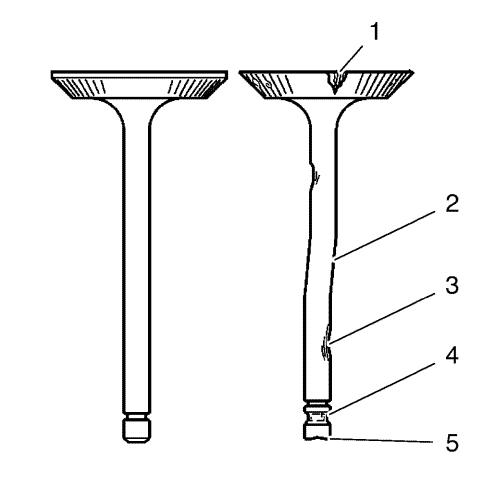
| 2.1. | Inspect the valve faces for burning and cracking (1). If pieces are broken, replace the valve and inspect the corresponding piston and cylinder head area for damage. |
| 2.2. | Inspect the valve for straightness and distortion (2). Distorted valve must be replaced. |
| 2.3. | Inspect the valve stem for wear (3). |
| 2.4. | Inspect the valve key grooves for chipping and wear (5). Replace the valve if chipped or worn. |
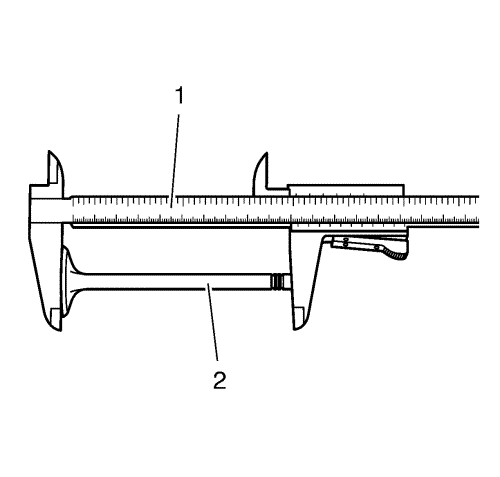
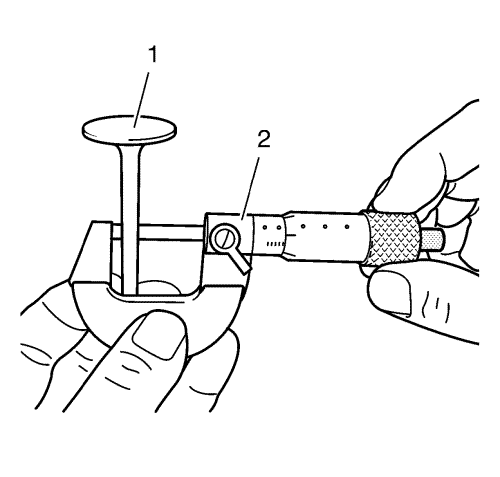
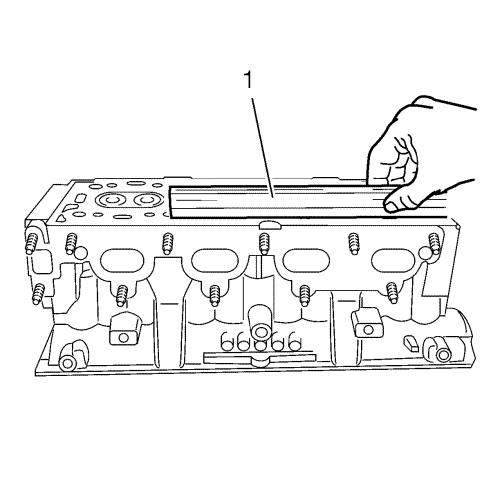
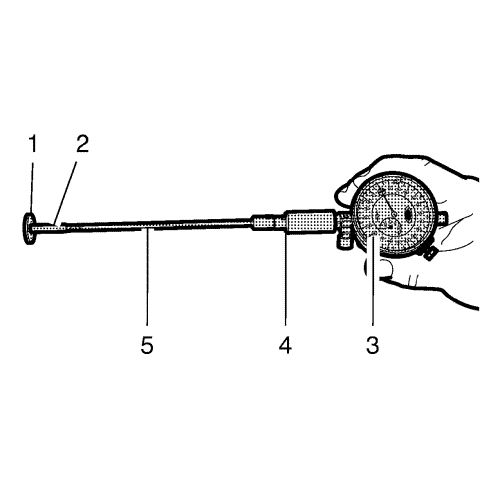
| 2.1. | Install the extension (5) to the support (4). |
| 2.2. | Install the inside calliper (2) to the extension (5). |
| 2.3. | Install the gauge (3) to the support (4) and pretension to 1 mm (0.0394 in). |
| 2.4. | Install the calibration washer (1) as shown to justify the gauge. |
| 2.5. | Adjust the gauge to 0 mm (0 in) by rotating the instrument dial. |
| 2.6. | Carefully remove the calibration washer (1). |
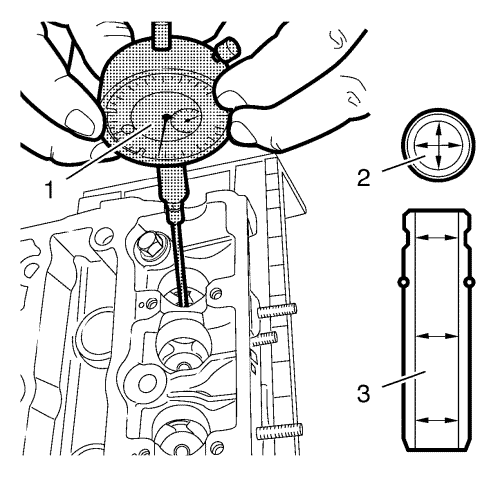
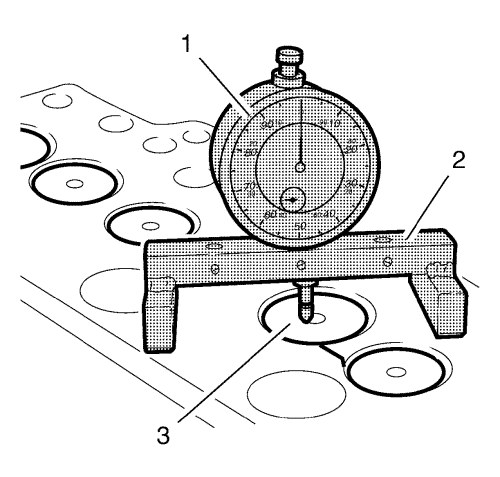
| © Copyright Chevrolet. All rights reserved |